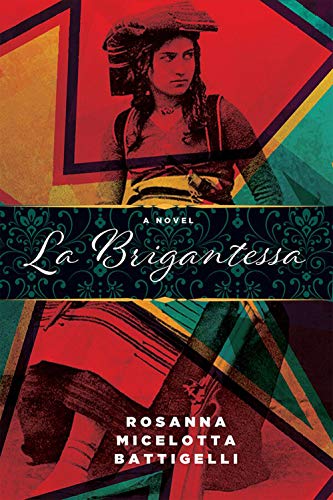La Brigantessa
In the aftermath of the Unification of Italy, two narrative streams intersect in the rugged beauty of the Calabrian mountains. Gabriella, a poor working farm girl, is raped by a wealthy landowner and stabs him as she attempts to escape. Stefano is hiding out with his brigand band, after avenging the brutal rape of his sister. Gabriella’s rapist comes after her. The head of Operations of Repression is hunting Stefano. Gabriella and Stefano are now both on the wrong side of the law. Both have to flee their homes and families. Both face a cruel kind of justice if caught. When Gabriella and her priest protector are accosted by the outlaw band, Stefano, a conflicted ‘Robin Hood’ known as the ‘gentleman’ brigand, vows to protect them.
This is an impeccably researched novel, borne out by the extensive bibliography of English and Italian sources, and the author’s love of her motherland is evident. Unfortunately, the story didn’t resonate with me, and the characters lack substance and dimension. Gabriella is like a pawn in a chess game in which everyone, except her, is proactive to some degree, good or bad intentions aside. And, with only 25 pages to resolve multiple storylines, the conclusion is rushed, putting the whole novel off balance.
Catholicism is an important theme here―people either look to God to fix everything or berate him because he hasn’t. Recognition of the potential for honourable behaviour from someone outside the law juxtaposes with this faith. Is a good man bad because he commits a crime for a wrong perpetrated on someone he loves? There’s very little justice evident during this historically turbulent time. “Justice? … It’s an excuse for the law to commit the horrible crimes they profess to fight against.” Thought-provoking, with ageless topics of human frailty and human cruelty.










